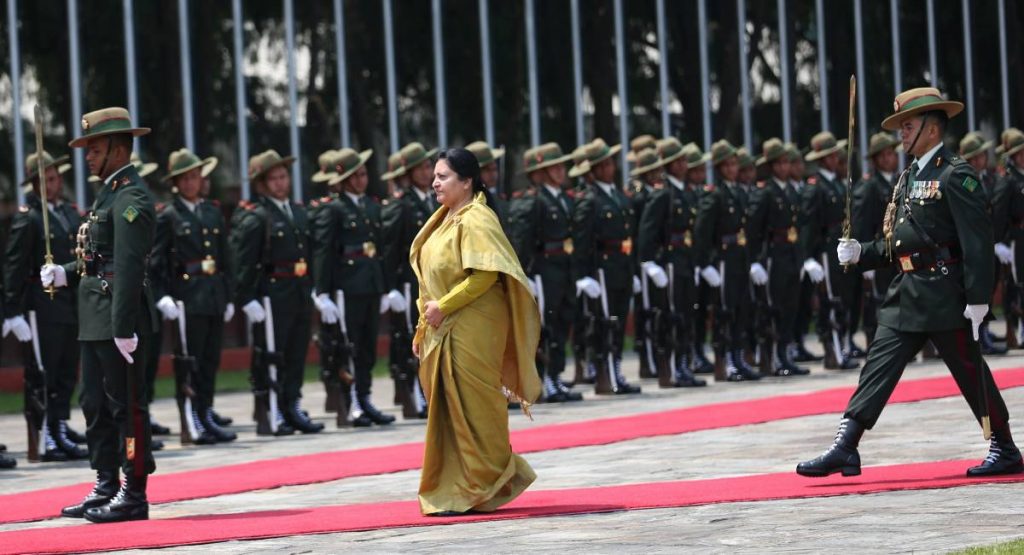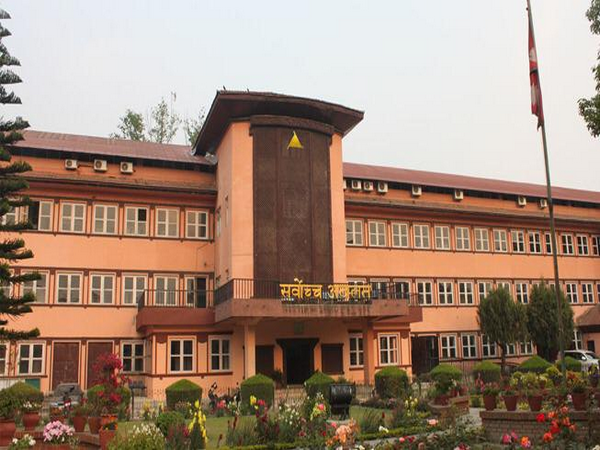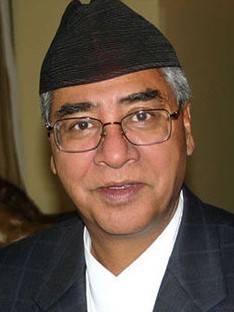On May 21, President Bhandari dissolved the House at the recommendation of the Oli government and announced the mid-term elections for November 12 and 19…reports Asian Lite News
Nepal’s opposition on Monday moved the Supreme Court against Prime Minister KP Sharma Oli’s decision to dissolve Parliament, holding the mid-term elections and President Bidhya Devi Bhandaris rejection to appoint the opposition leader as the next prime minister.
On May 21, President Bhandari dissolved the House at the recommendation of the Oli government and announced the mid-term elections for November 12 and 19.
Nepali Congress President and leader of the opposition party, Sher Bahadur Deuba, Chairman of the Communist Party of Nepal (Maoist Centre) Pushpa Kamal Dahal, Chairman of the Janata Samajbadi Party Uprendra Yadav, former Prime Minister Madhav Kumar Nepal and dozens of other leaders and lawmakers had moved the Supreme Court.
A writ petition, which was filed on the behalf of Deuba, demanded the restoration of House, appoint him the next Prime Minister by removing Oli who no longer enjoys a parliamentary majority.

“Due to the Prime Minister who always thinks he is above the constitution and law, we were forced to move the Supreme Court again and again,” said Nepali Congress lawmaker Gagan Thapa.
Oli too had earlier dissolved the house in December last year, but it was reinstated on by the apex court.
“We have the support of the majority lawmakers and Supreme Court will look after our grievances,” said Thapa.
Of the 275 members of the House of Representatives four are suspended and 136 is the magic number needed for a majority.
Deuba is backed by 147 lawmakers and all of them signed in the writ petition.
ALSO READ: Nepal President Dissolves Parliament, Election In November
All 147 lawmakers from different political parties have verified their signatures at the Supreme Court after the writ petition was filed.
Before dissolving the House, President Bhandari had also rejected the claim by Deuba to form the new government saying that both opposition party leader and Oli secured signatures of the majority lawmakers, and hence it was impossible.
Oli had claimed that he had the support of 152 lawmakers.

The opposition parties called the President’s move as “unconstitutional and undemocratic” and had attempted a coup with the support of Prime Minister Oli.
Deuba’s move was supported by his own party, Nepali Congress, Communist Party of Nepal (Maoist Center), a section of ruling party led by former Prime Minister Madhav Kumar Nepal and a section of the Janata Samajbadi Party.
Oli’s ruling party, Nepal Communist Party-UML, is a divided house.
Out of its 121 lawmakers, 23 lawmakers have signed in favour of making Deuba as Prime Minister.
More lawmakers would support Deuba but some of our lawmakers are not well and some are infected by Covid,

Birod Khatiwada, a lawmaker said that due to Oli’s working style, the ruling party is on the verge of a split.
Janata Samajbadi Party is also on the verge of split as 13 out of its 32 lawmakers have decided to support Deuba.
A section of the Janata Samajbadi Party is all set to join the Oli government.
It was formed last April after the merger of Rastriya Janata Party and Samajbadi Party Nepal.

